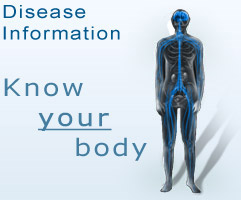Headaches (non-migraine)
Headache is among the most common medical complaints. Headaches can be quite unbearable, although the vast majority are not due to life threatening disorders. Different types of headache syndromes exist other than migraine. These include the following.
1. Tension-type headache
People with tension-type headache often note a feeling of mental stress or tension before their headache. Unlike migraine, tension headaches occur without other symptoms such as nausea, vomiting, sensitivity to lights and sounds or an aura. However, some people have symptoms of both tension and migraine headaches.
Tension headaches may be:
- infrequent episodic (occurring less than once per month);
- frequent episodic (occurring one to 14 times per month); and
- chronic (occurring 15 or more days per month).
Symptoms of tension-type headaches include:
- pressure or tightness around both sides of the head or neck;
- mild to moderate pain that is steady and does not throb;
- pain that is not worsened by activity;
- pain that increases or decreases in severity over the course of the headache; and
- tenderness in the muscles of the head, neck or shoulders.
People with frequent or chronic tension-type headaches often overuse over-the-counter and prescription medication in an attempt to treat their pain. This can lead to headaches caused by medication overuse.
2. Cluster headaches
Cluster headaches are severe, unbearable headaches that occur repeatedly for weeks to months at a time, followed by periods with no headache.
Symptoms of cluster headaches include:
- It begins quickly and without any warning, reaching a peak within a few minutes.
- It is usually deep, excruciating, continuous and explosive in quality, although occasionally it may be pulsing and throbbing.
- The attack may occur up to eight times per day, but is usually short in duration (between 15 minutes and three hours).
- Pain typically begins in or around the eye or temple; less commonly it starts in the face, neck, ear or side of the head. The pain is always on one side. It remains on the same side of the head during a single cluster, but can switch sides during the next cluster in a small percentage of people. Most people with cluster headaches are restless and may pace or rock back and forth when an attack is in progress.
- Cluster headaches are associated with eye redness and tear production on the side of the pain, a stuffy and runny nose, sweating, a pale appearance and possibly drooping of the eyelids. Some persons are light sensitive in the eye on the affected side. Other neurologic symptoms are rare. Alcohol can bring on a cluster headache in more than 50% of persons who suffer from cluster headaches. This sensitivity to alcohol stops when the cluster ends.
Family history
Cluster headaches can begin at any age. People with cluster headaches are more likely to have family members who also have cluster headaches.
3. Chronic, daily headaches
Some people develop very frequent headaches, as frequent as every day in some cases. When a headache is present for more than 15 days per month for at least three months, it is described as a chronic daily headache.
4. Headaches caused by medication overuse
Headaches caused by medication overuse may occur in people who have frequent migraine, cluster or tension-type headaches, which leads them to overuse pain medication. A vicious cycle occurs whereby recurrent headaches cause the person to take medication frequently (often over the counter), which then causes a rebound headache as the medication wears off. This causes more medication use and so on.
NOTE: Headaches caused by medication overuse is a possible diagnosis in people who have frequent or daily headaches despite (or because of) the regular use of headache medication.
Overuse of any number of pain medicines can contribute to the development of headaches, including paracetomol, mixed combination analgesia, ergotamines, opioids, triptans and other combinations of medicines.
To avoid these headaches, pain medication should not be used more than nine days per month. Preventive medication may be needed for people who have headaches more frequently.
Diagnosis
Doctors typically use a person's description of their headache, in combination with an examination, to determine the type of headache. Some people have more than one type of headache.
Most people do not need x-rays or imaging tests, although a clinician may recommend a CT scan (or MRI) in some circumstances, e.g. if symptoms are not typical of a specific headache syndrome, if there are any danger signs or if any abnormalities are picked up during the examination. Other possible reasons for brain imaging include:
- headaches that steadily worsen despite treatment;
- a sudden change in the pattern of headaches; and
- signs or symptoms that suggest that another medical condition may be causing the symptoms.
Danger signals
The vast majority of headaches are not life threatening. However, anyone with the following signs or symptoms should seek medical attention immediately:
- a sudden, persistent headache that becomes severe within a few seconds or minutes or that could be described as "the worst headache of your life";
- a severe headache associated with fever or a stiff neck;
- headache associated with a seizure, personality changes, confusion or loss of consciousness; or
- headache that begins quickly after strenuous exercise or minor trauma;
- a new headache associated with neurological symptoms, e.g., weakness, numbness or impaired vision; while migraine headaches can sometimes cause these symptoms, a person should be evaluated urgently the first time these symptoms appear.
People with persistent or frequent headaches that interfere with normal activities or a change in a previous headache pattern should see their healthcare provider.
Treatment
In many people, headaches can be well controlled with a combination of medication and complementary therapies. Treatment is most successful when it is tailored to the person's individual needs and the person actively participates in therapy. Feel free to discuss treatment options with your doctor or healthcare provider.
Headache diary
Persons who have frequent or severe headaches may benefit from keeping a headache diary over the course of one month. This can be used to determine the characteristics of the headaches, what triggers them and what makes them better.
Reference
 TransmedBanner4.jpg)

